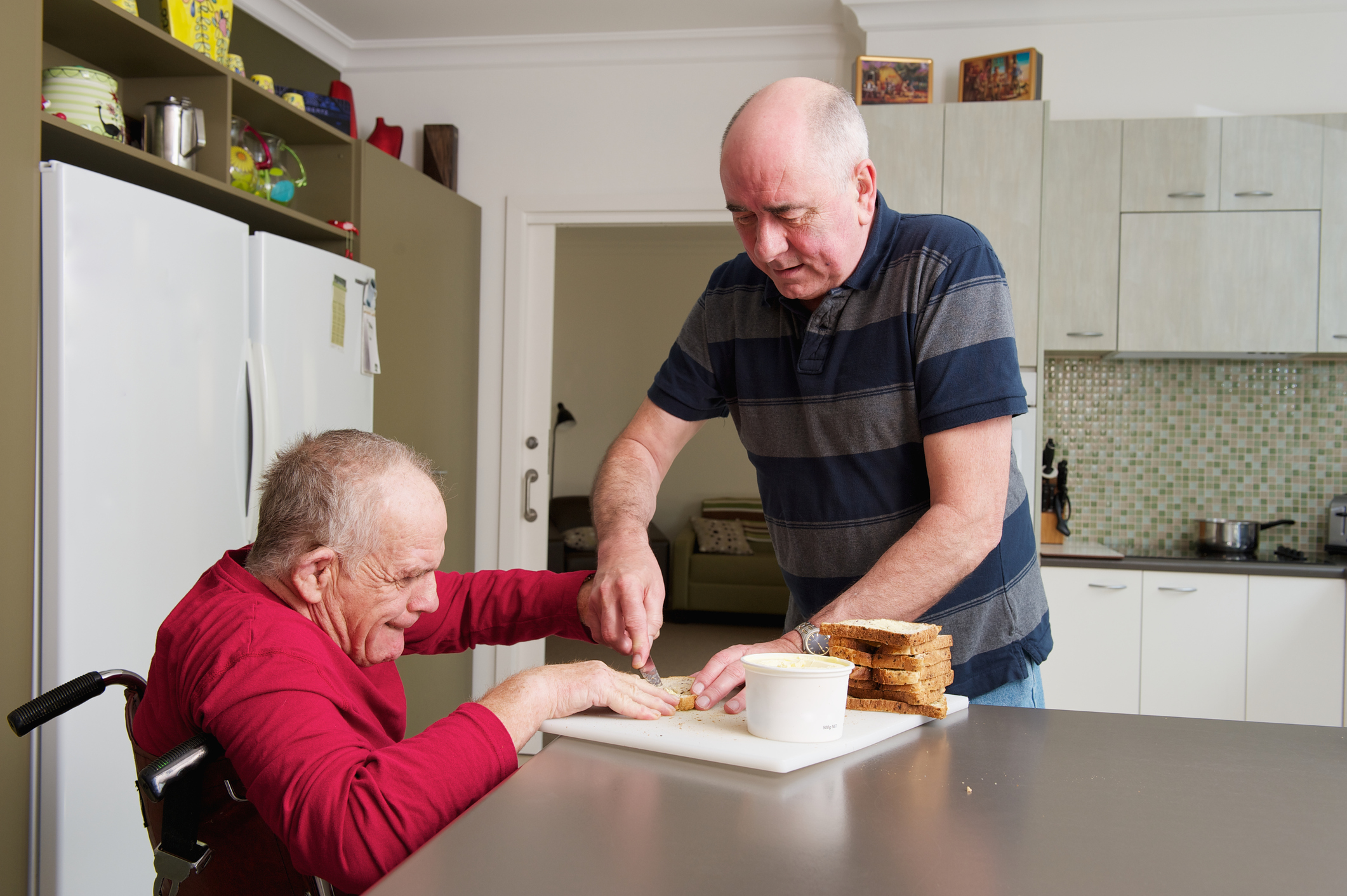Informal or family caregivers carry a significant load when it comes to looking after the daily needs of an elderly loved one. Traditionally, the role of caregiver is assumed by women, and often they are sandwiched between raising their own family, working, and helping older family members who need help with meal preparation, doctors’ visits, housekeeping, or medication management. But the number of male caregivers is rising, and support for men looking after a spouse with a disability or an aging family member is also growing.
According to a recent article in Brain and Life, a 2020 AARP National Alliance for Caregiving (NAC) report estimates that nearly 40 percent of the 53 million American caregivers are men. As gender roles and dynamics between generations shift, it is expected that more men will take on the role of caregiver, helping their parents age in place, or caring for a partner after an illness or diagnosis of chronic disease.
There can be a steeper learning curve for male caregivers who may have to quickly adapt to many new roles with which they don’t necessarily have much experience. Learning not only to care for the physical and emotional needs of a dependent loved one, but also taking on household chores, financial planning, and coordinating family visits can be daunting for a new caregiver.
Because caregivers often experience high levels of stress and social isolation, it’s essential for men and women to seek out support and programs that offer respite care. Older men may feel less comfortable with personal care such as bathing or dressing a loved one and hire a home health aide for these duties. But as younger generations more evenly share household chores, men are becoming comfortable and competent in housework, cooking, scheduling, and shopping.
Support groups for caregivers were once comprised mainly of women, but increasingly men are assuming the role of caregiver and reaching out to others for support, information, and resources. Participating in groups that provide opportunities to share experiences and difficulties helps prevent isolation and avoid burnout. Hearing from others in similar situations can give caregivers a greater sense of community and the encouragement to find ways to care for their own physical and emotional wellbeing.
Learn more about caregiving resources for men and women by following this link to the National Caregiver Alliance website.






Add Your Voice
0 Comments
Join the Discussion